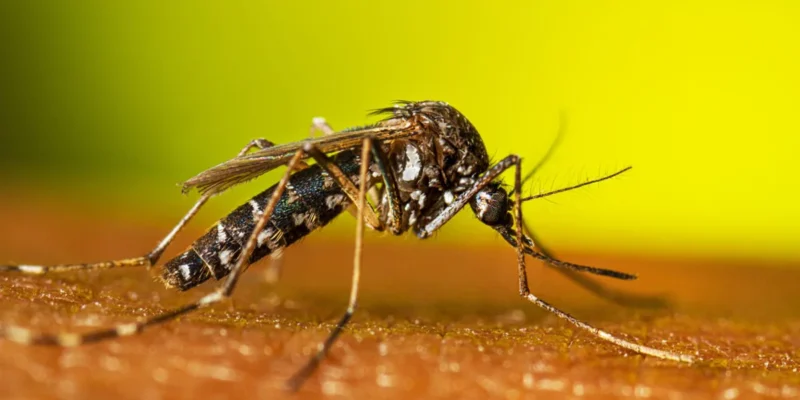Mosquitoes are more than a nuisance; they pose serious health risks by transmitting diseases such as malaria, dengue, and Zika virus. Managing mosquito populations in residential areas requires a combination of effective strategies to provide lasting results. This article outlines long-term solutions for mosquito control that prioritize safety, sustainability, and effectiveness.
Understanding the Mosquito Problem
Mosquitoes thrive in warm, humid environments and breed in stagnant water. Residential areas often provide ideal conditions due to poor water management, overgrown vegetation, and inadequate preventive measures. Identifying the root causes of mosquito infestations is crucial for implementing effective solutions.
Eliminate Breeding Grounds
One of the most critical steps in long-term mosquito control is removing their breeding sites. Mosquitoes lay eggs in stagnant water, making it essential to regularly inspect and address areas where water may collect.
- Drain Standing Water: Regularly empty items like buckets, flower pots, and bird baths that collect water.
- Maintain Gutters and Drains: Ensure gutters and drainage systems are free of blockages to prevent water accumulation.
- Properly Store Containers: Store outdoor items, such as unused tires or tarps, in covered or enclosed spaces.
Natural Predators and Biological Control
Introducing natural predators and employing biological control methods can significantly reduce mosquito populations. These eco-friendly approaches ensure that mosquito control is effective without harming the environment.
- Encourage Beneficial Wildlife: Animals like birds, bats, and dragonflies naturally feed on mosquitoes and their larvae.
- Use Larvicidal Bacteria: Products containing Bacillus thuringiensis israelensis (Bti), a bacteria that targets mosquito larvae, are safe for humans and animals but effective against mosquitoes.
Landscaping for Mosquito Control
The layout and maintenance of residential gardens and lawns can influence mosquito activity. Proper landscaping minimizes the conditions that attract mosquitoes.
- Trim Overgrown Vegetation: Mosquitoes rest in shady areas during the day. Keeping shrubs and grass well-trimmed reduces hiding spots.
- Use Mosquito-Repellent Plants: Incorporate plants like citronella, lavender, and marigolds, which naturally repel mosquitoes.
- Improve Drainage: Ensure your yard has proper drainage to avoid water pooling after rain.
Install Physical Barriers
Preventing mosquitoes from entering homes is an effective way to protect residents. Physical barriers provide a simple yet reliable solution.
- Screen Windows and Doors: Install fine mesh screens to keep mosquitoes out while allowing airflow.
- Use Bed Nets: In areas with high mosquito activity, sleeping under a mosquito net offers additional protection.
- Seal Gaps and Cracks: Ensure windows, doors, and walls are properly sealed to prevent mosquito entry.
Mosquito Exterminator Services
For severe infestations or when DIY methods are insufficient, hiring a professional mosquito exterminator is a valuable investment. These experts use specialized equipment and techniques to reduce mosquito populations effectively.
- Comprehensive Treatment Plans: Professional mosquito exterminators assess the property, identify breeding sites, and apply targeted treatments.
- Integrated Pest Management (IPM): Many exterminators follow IPM practices, combining chemical, biological, and physical control methods for sustainable mosquito control.
- Routine Maintenance: Scheduling regular visits ensures long-term protection and prevents future infestations.
Use of Safe and Effective Repellents
Repellents provide personal protection against mosquito bites, complementing other control methods. Long-term mosquito control should include safe, environmentally friendly options.
- Natural Repellents: Essential oils like eucalyptus and lemongrass are effective for short-term relief.
- EPA-Approved Products: Use repellents with proven ingredients like DEET or picaridin for reliable protection.
Community-Wide Efforts
Mosquito control is most effective when approached at a community level. Collaborative efforts ensure broader coverage and reduce reinfestation.
- Neighborhood Cleanup Drives: Organize events to remove waste and clear standing water from public areas.
- Educational Campaigns: Increase awareness about mosquito control practices and their importance.
- Local Government Support: Advocate for fogging and other large-scale mosquito control measures during peak mosquito seasons.
Innovative Mosquito Control Technologies
Emerging technologies offer new ways to tackle mosquito problems in residential areas. These methods are designed to provide effective, long-lasting solutions.
- Mosquito Traps: Devices that attract and capture mosquitoes using light, heat, or CO2 can significantly reduce populations.
- Genetic Modification: Researchers are exploring methods to release genetically modified mosquitoes that reduce the ability of wild populations to reproduce.
- Smart Mosquito Monitoring: Internet-connected devices can help monitor mosquito activity and provide timely alerts for intervention.
Conclusion
Controlling mosquitoes in residential areas requires a multifaceted approach that combines eliminating breeding sites, encouraging natural predators, using physical barriers, and hiring a mosquito exterminator for professional intervention. By adopting long-term strategies and involving the community, residents can significantly reduce mosquito populations and protect their health and well-being. With consistent effort and innovation, it’s possible to create mosquito-free residential spaces while minimizing the environmental impact of control measures.












Comments